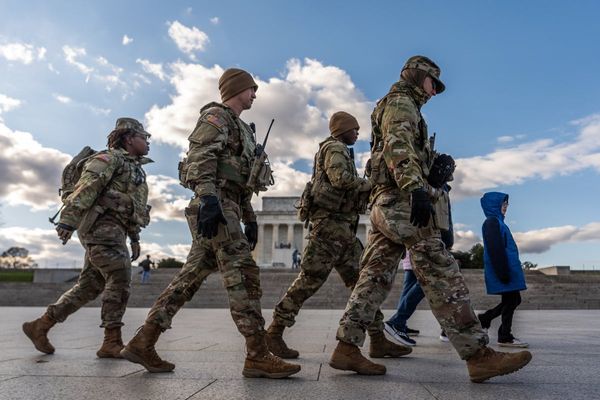COVID-19 cost Queensland Health about $1.3 billion last financial year, including almost $200 million in expected write-offs for unused rapid antigen tests (RATs), an auditor-general's report has found.
The report lays bare the ongoing costs of the pandemic to the department, including $18 million in special leave paid to about 1,700 health workers who did not comply with COVID-19 vaccine mandates while employment contracts and exemption requests were assessed.
"A more agile public service could have reallocated these staff to other public sector entities that needed them rather than keeping them on its payroll while on suspension," Auditor-General Brendan Worrall wrote in his 49-page health audit for 2021-22.
"To become a more dynamic and responsible organisation, the public sector needs flexible work practices that meet both organisational and employee needs, including ways of moving employees more easily across the sector.
"This issue also created significant administrative burden for the department and HHSs [Hospital and Health Services] in assessing the claims of staff seeking a vaccination exemption."
Queensland Health no longer employs about 600 of the health workers.
Mr Worrall's report reveals an already-stretched health system buckling under the added burden of dealing with a once-in-a-century pandemic.
He found the number of Queensland patients waiting longer than recommended for specialist outpatient appointments last financial year increased by 80 per cent to 104,000 amid COVID-19 impacts, including the first two Omicron waves.
Queensland Ambulance Service also faced growing demand.
The audit found the time patients spent on ambulance stretchers beyond 30 minutes before being admitted to an emergency department increased by 20 per cent compared to the previous financial year.
Omicron left the Queensland Health workforce reeling under significant pressures in the 2021-22 year, with sick leave increasing by 29 per cent between January and June, coinciding with the first six months after borders reopened.
"System capacity reduced due to increase in sick leave," Mr Worrall wrote.
Overtime increased by 24 per cent across the full financial year.
Funding for frontline contract staff, such as locum doctors, employed temporarily to fill short-term vacancies, increased by 37 per cent during the year — a spike in more than $80 million from the 2020-21 year.
"This was due to the continued increase in demand, the unavailability of staff due to sick leave from COVID-19, and additional COVID-19 expenditure [such as staffing vaccination centres]," Mr Worrall said.
Millions of dollars worth of RATs could go to waste
Financial losses due to inventory write-offs, such as RATs due to expire between January 2023 and June 2024, skyrocketed to more than $260 million last financial year — up from almost $45 million the previous year.
Mr Worrall said the department had seen a significant reduction in demand for RATs.
"Queensland Health procured a large supply … based on the expectation they would be required by students and teachers at schools," he said.
"However, government strategy changed to only require RATs in schools for teachers and students who develop COVID-19 symptoms."
Mr Worrall said Queensland Health had investigated options for using the RATs to maximise benefits before their expiry dates, suggesting they could be provided to vulnerable groups within the community.
Health Minister Yvette D'Ath said the department continued to utilise the rapid antigen tests.
"We will do what we can to make sure we disperse as much as we can before their expiry," she told reporters in Townsville.
"That has been our strategy all along."
Lengthy waitlists not expected to recede
As the COVID-19 pandemic continues, Mr Worrall foreshadowed tough times ahead, citing longer waitlists and the sustainability of the health system as significant challenges in the longer term.
Ms D'Ath said new models of care were being looked at "all the time to find better ways for outpatients to be seen".
"What is key here, is the primary and allied health care system," she said.
"People are going to end up with chronic illnesses and complex conditions needing longer stays in hospital, and potentially needing those outpatient appointments, if they can't see a GP, if they're not getting that care early and getting that holistic care from their general practitioner in the community.
"That leads to their health condition exacerbating. We know there's a decline in available GPs, we know there's a decline in affordability of GPs and that's the conversation we're having with the Commonwealth right now."
While Queensland hospital and health services recorded a combined operating surplus of $42 million in 2021-22, Mr Worrall predicted an increased likelihood of HHSs "reporting operating deficits" this financial year.
"This is because of the ongoing pandemic restricting delivery of planned services, particularly during the COVID-19 spike in July 2022, and the end of the minimum funding guarantees from the Australian and Queensland governments," he said.
"Queensland Health monitors HHSs' activity levels and, where HHSs do not meet targets, the department can withdraw or claw back funding."
The audit report found that about 29 per cent of Queensland Health-owned buildings, worth more than $6 billion, were due to be replaced within the next decade.
It said $1.5 billion had been committed in the 2022-23 budget for health infrastructure, capital works and purchases, including funding for hospitals, ambulance stations and staff accommodation.
But Mr Worrall warned the sector would face challenges in achieving the desired outcomes from its capital investment program, with market conditions placing considerable pressure on costs and shortages in materials and labour creating risks around timing.







